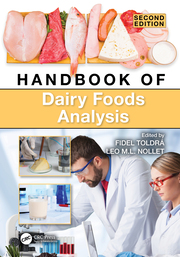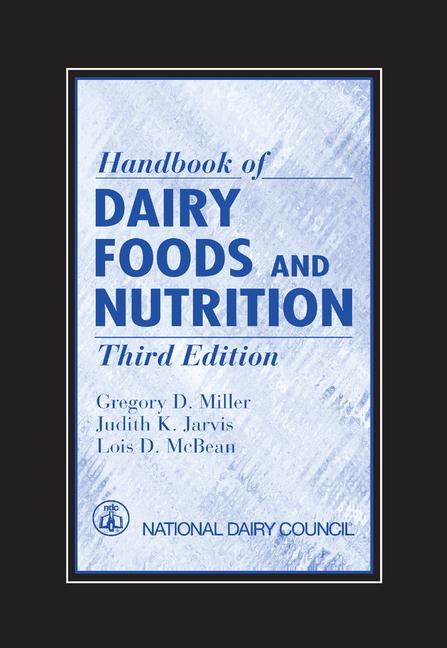Dairy organizations applaud Congress for passing USMCA
The agreement needs President Trump’s signature, Canadian approval to go into effect.

On Jan. 16, the U.S. Senate passed the United States-Mexico-Canada Agreement (USMCA). The agreement still needs President Trump’s signature and Canadian approval to go into effect.
Michael Dykes, D.V.M., president and CEO of the Washington, D.C.-based International Dairy Foods Association (IDFA), applauded the Senate’s passage of USMCA.
“We are grateful to the United States Senate for their passage today of the U.S-Mexico-Canada Agreement, and for the leadership of the U.S. House of Representatives and their collaboration with the administration on this important trade pact,” he said. “The bipartisanship on USMCA has been impressive. The new USMCA deal delivers peace of mind for our businesses, removing the handcuffs of uncertainty that have constrained business decisions over the past two years as the deal was negotiated.
“The USMCA deal is a major win that levels the playing field with our largest trading partners,” Dykes continued. “It preserves hundreds of thousands of jobs in U.S. food and agriculture directly attributed to trade with Canada and Mexico. It removes several overly protective policies that had hampered U.S. agricultural exports. And it will raise U.S. GDP by $68.2 billion and pump an additional $2.2 billion, or 1.1%, into the U.S. economy through increases in agricultural and food exports.”
The U.S. Dairy Export Council (USDEC) and National Milk Producers Federation (NMPF), both based in Arlington, Va., also cheered the Senate’s passing of the agreement. Looking ahead, USDEC and NMPF said they are urging U.S. officials to carefully monitor Canada and Mexico’s USMCA commitments once the trade deal takes effect. They want to ensure its provisions are enforced accordingly and the dairy industry is able to reap the full benefits of the agreement negotiated by Ambassador Lighthizer and the negotiating teams at the Office of the United States Trade Representative and USDA.
“USMCA makes important strides to break down trade barriers, opening the door to new opportunities and supporting the flow of high-quality American dairy products to two valuable export markets,” said Tom Vilsack, president and CEO of USDEC. “The strong enforcement measures included in the final agreement give officials the tools necessary to hold our trade partners accountable and ensure the gains secured by USMCA are completely realized.
“We are grateful to the administration for the sizable accomplishments secured in USMCA on dairy,” he added. With this trade deal complete, negotiators can now turn their attention to other key markets around the world in order to gain further ground for U.S. dairy.”
Jim Mulhern, president and CEO of NMPF, said U.S. dairy farmers are celebrating the vote as a win.
“Under President Trump’s leadership, USTR and USDA negotiated an agreement that will deliver a more certain future for our dairy farmers and rural economy,” he said. “The U.S. must now remain diligent and proactively work with Canada and Mexico to implement USMCA in both letter and spirit. Full compliance is essential to achieving more fair trade with Canada and protecting American-made cheeses in Mexico.”
Edge Dairy Farmer Cooperative, Green Bay, Wis., also praised passage of the trade pact by the U.S. Senate.
“With USMCA having now reached the finish line, we should celebrate this as a landmark victory not only for dairy farmers and processors but for our country as a whole,” said Brody Stapel, president of Edge and a dairy farmer in eastern Wisconsin. “For the past 25 years, NAFTA has given us productive and reliable markets for our dairy foods. Improvements under USMCA will take us to the next level.
“Mexico and Canada account for 40% of all U.S. dairy exports — a value of $2 billion each year and tens of thousands of American jobs,” he added. “USMCA will not only keep us from losing ground in these critically important markets but will also bring opportunities to increase market share. Other agricultural commodities will see significant gains as well."
USMCA fundamentally changes Canada’s trade-distorting policies, reforms Canada’s controversial dairy pricing system and provides exclusive Canadian market access for U.S. farmers and manufacturers, USDEC and NMPF said. According to the International Trade Commission, U.S. dairy exports are projected to increase by more than $314 million a year. USMCA also strengthens the relationship between Mexico and the U.S. and establishes new protections for products that rely on common cheese names, such as parmesan and feta.
Over the last 25 years, U.S. food and agricultural exports to Canada and Mexico have more than quadrupled under USMCA’s predecessor, the North American Free Trade Agreement, or NAFTA, growing from $9 billion in 1993 to nearly $40 billion in 2018 and helping support more than 325,000 American jobs in food and agriculture and related sectors of the economy, IDFA noted.
Looking for a reprint of this article?
From high-res PDFs to custom plaques, order your copy today!







